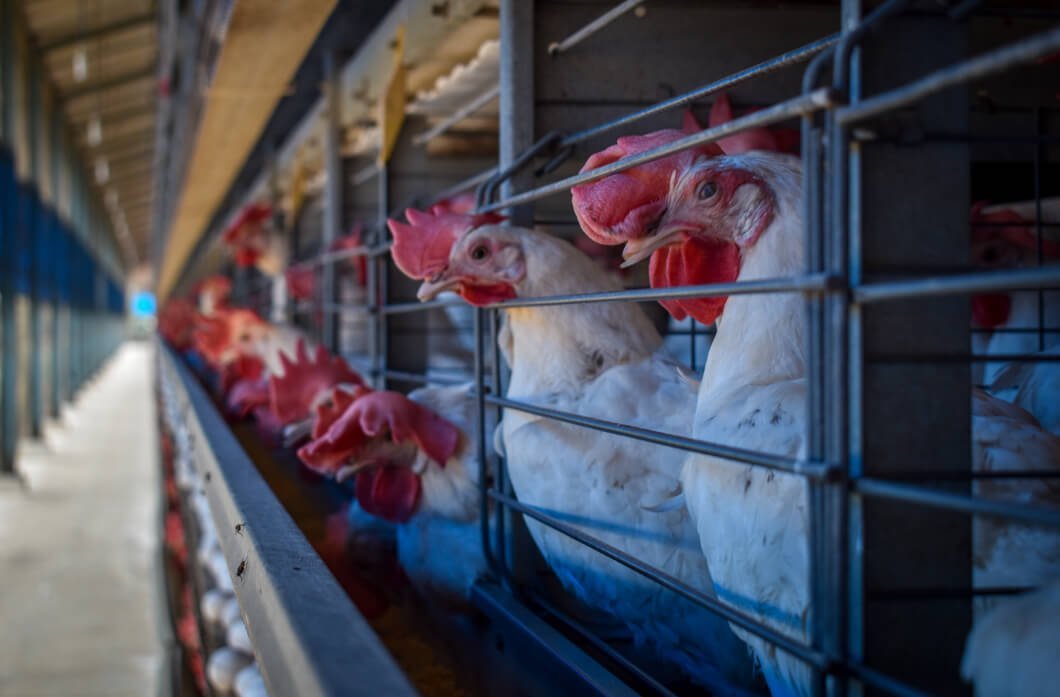World’s first case of bird flu in a sheep confirmed on UK farm
The infection of another new species of mammal raises further concerns on how the devastating virus continues to spread and mutate.
The world’s first case of bird flu in a sheep has been detected on a farm in the UK.
The country’s Chief Veterinary Officer confirmed that a single sheep tested positive for the avian influenza (H5N1), with the virus present in the animal's milk. Health authorities subsequently culled the infected animal.
The discovery was made during routine safety checks after captive birds on the same farm tested positive for the virus.
“Globally, we continue to see that mammals can be infected with avian influenza A(H5N1),” said Dr Meera Chand, a spokesperson for the UK Health Security Agency.
Following the announcement, the agency said the risk of avian flu to the general public “remains very low”.
However, the case is the latest worrying reminder that this strain of bird flu continues to evolve and crossover into new species.
How bird flu has evolved
Highly pathogenic avian influenza (HPAI) was first reported at a goose farm in China back in 1996. In the decades since, the virus has killed millions of wild birds, millions of farmed birds, and thousands of mammals, after it spilled into wild bird populations in 2007.
The current outbreak began in 2021, when a particularly transmissible strain of the virus mutated and began to spread rapidly, affecting 37 European countries and later crossing the Atlantic Ocean as birds migrated to North America.
Factory farms where animals are kept in unhygienic and confined spaces have been particularly hit by the virus. Credit: Amy Jones/Moving Animals
The virus continues to devastate wildlife populations, with millions of wild birds and thousands of mammals killed by bird flu in recent years.
Its current spread has ranged from endangered animals like Peruvian pelicans which had more than 40 percent of their population wiped out within just a few weeks, to remote cases like the death of an infected polar bear in the northernmost community of Alaska last year.
Alongside wildlife, the virus has persistently devastated millions of farmed animals.
In the US alone, over 168 million birds in commercial and backyard flocks have perished due to the virus since February 2022, according to government figures.
But the current strain has alarmed scientists with its ability crossover into other farmed animals, including pigs and cows. Currently 17 states in the US have reported H5 bird flu outbreaks in dairy herds so far.
Scientists and experts fear that with each infection, the virus has a chance of mutating and becoming more dangerous and more efficient in infecting humans. If the virus then adapts to spread from human to human, “that’s when you’re going to have the pandemic,” Robert Redfield, who served as director of the US Centers for Disease Control and Prevention (CDC) from 2018 to 2021, previously said about the current spread of bird flu.
The former director of the CDC is among those who have previously warned that bird flu will likely cause a pandemic at some point. “I really do think it’s very likely that we will, at some time, it’s not a question of if, it’s more of a question of when we will have a bird flu pandemic,” Redfield warned.
According to the Word Organisation for Animal Health, the current outbreak of bird flu is caused by several factors, including the globalization of trade, wild birds and their migratory routes, and the farming of animals for human consumption.
We Have A Favor To Ask…
Species Unite amplifies well-researched solutions to some of the most abusive animal industries operating today.
At this crucial moment, with worldwide momentum for change building, it’s vital we share these animal-free solutions with the world - and we need your help.
We’re a nonprofit, and so to keep sharing these solutions, we’re relying on you - with your support, we can continue our essential work in growing a powerful community of animal advocates this year.





